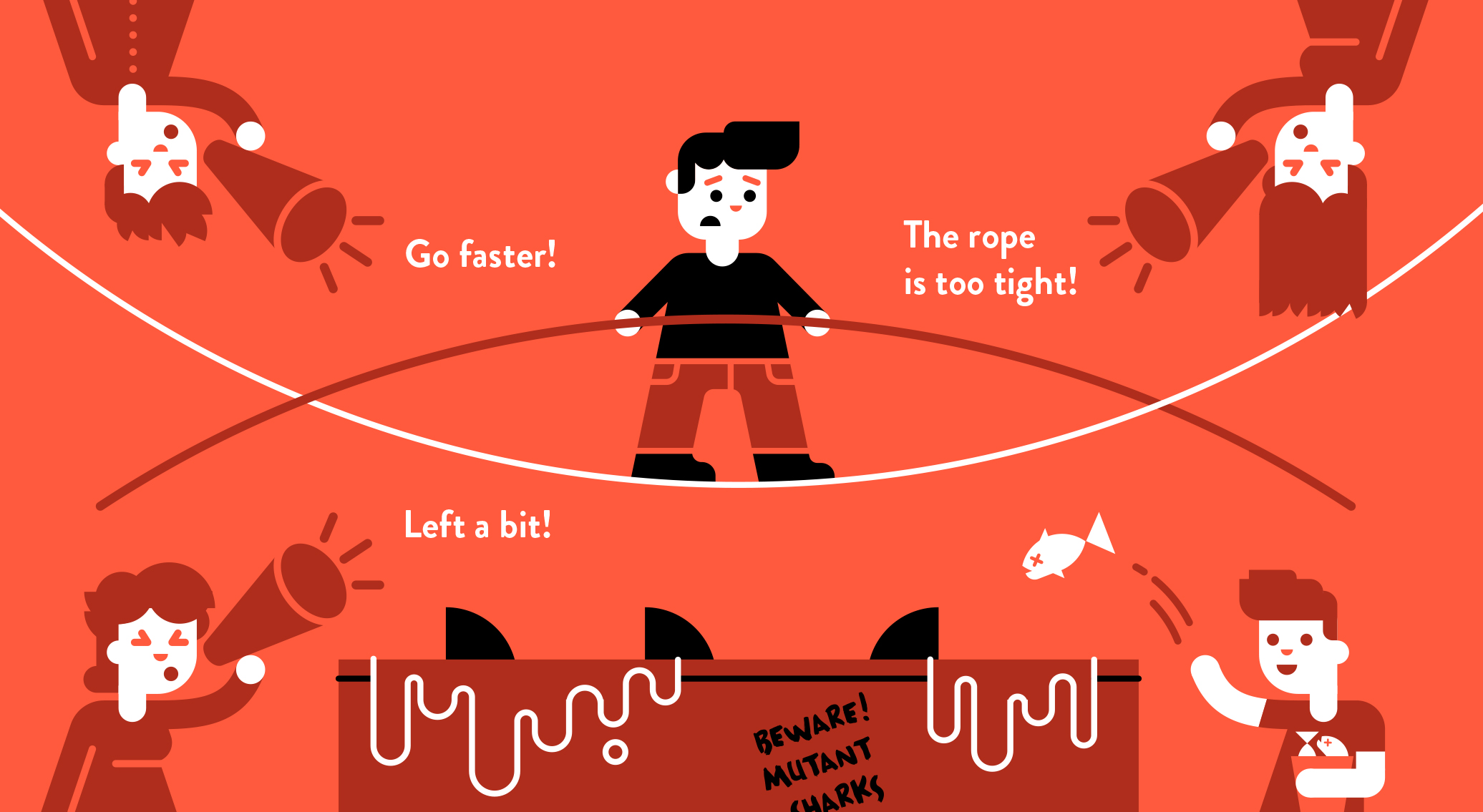Collecting feedback on your ideas, creations and iterations is a hugely important part of the creative process. But not all feedback is created equal. For every insightful observation and useful suggestion, some comments can miss the point, lack context or just be plain wrong.
Dealing with the latter can be tricky, especially when you have to be sensitive to the personality and position of the reviewer. It can also be difficult not to start second guessing your own opinions when suddenly faced with a contrary viewpoint.
Our six tips for dealing with feedback will help you handle negative comments, while remaining true to your original vision.
1. Think about the reviewer
If someone gives you feedback with which you instinctively disagree, think about who they are. They may be offering expertize on a specific area that your skills don’t cover. Someone might have a proven instinct for making things better. The opinions of these people deserve deeper consideration. For everyone else, be confident and trust your own judgment.
2. Don’t get defensive
When someone offers a critique of your work, try not to be the first person to respond. Your gut reaction will often be to defend yourself, but first take some time to fully understand their comments and perspective. In the meantime, others reviewers may react either to back up your side or show that the original commenter may have a point.
3. Explore small issues for symptoms of bigger ailments
If someone doesn’t like a word you’ve used in a written piece, ask if the problem is the word or its meaning. Do you need to reach for the thesaurus or do a bigger rethink? Sometimes reviewers can’t see that minor complaints actually represent a greater underlying issue. Always question feedback to see if it’s actually the root of something more significant.
4. Be clear on who has the final say
You may be driving the project but if you don’t agree with the final approver’s feedback, you need to deal with this. Try discussing issues with this person in a 1:1 situation instead of at a wider meeting where egos (yours included) may come into play. If you have the final say, get a second opinion on contentious feedback from an objective friend or colleague.
5. Anticipate criticism
Before the review process, try to imagine what issues others may have with your work. Being able to say “I thought about that as well” and providing a considered counter-point is a great way to respond to feedback. If you’re doing something new for your business, people’s criticisms are often based on fear so show examples of how other businesses succeed by taking risks.
6. Never refuse to iterate
You may not agree with the feedback you’ve received, but that shouldn’t stop you working on a new version. Even if you don’t incorporate suggestions, having another pass with the comments in mind can lead to fresh insights and improvements. In addition, viewing a new iteration often helps a reviewer see that their original comments were not that important.
So the next time you’re facing the sharp end of a red pen, bear these tips in mind to ensure the review process is a creative benefit instead of a battle of wills.






Great tips! I would also emphasize that if the notes are real-time, i.e. in a meeting, to let the reviewer express their full idea without interruption. Ask follow-up questions and consider before counter-commenting. Sincere listening can help create a calmer atmosphere. Many times collaborators just want to be heard, rather than get their way.
I actually want to know how to change from PDF to download link. Can I get the procedure?
@Hnin Nandar Win: Email our support team (support@hightail.com) or try our Live Chat here: https://hightail.zendesk.com/hc/en-us. They’ll be able to help you out.
Thanks for the tips, spot on! I often need to keep client KING!
Good insights!
Good tips, hopefully one will be able to keep in social media your future articles.
why are you sending me this article? Seems Hightail should be the one reading it?
Since I’ve never heard back about my concerns for my clients not being able to open the page I sent their work on. This basically makes Hightail useless to me. So read the article.
@Ed Williamson I’ll pass your details on to our support team and someone will be in touch shortly. Thanks for the feedback.
Thanks for the insightful piece! Great work. I am so grateful for HTS!
Useful tips: some I already use but some new tactics to try out.
Thanks Hightail. Love your service and love this post, very useful and insightful.